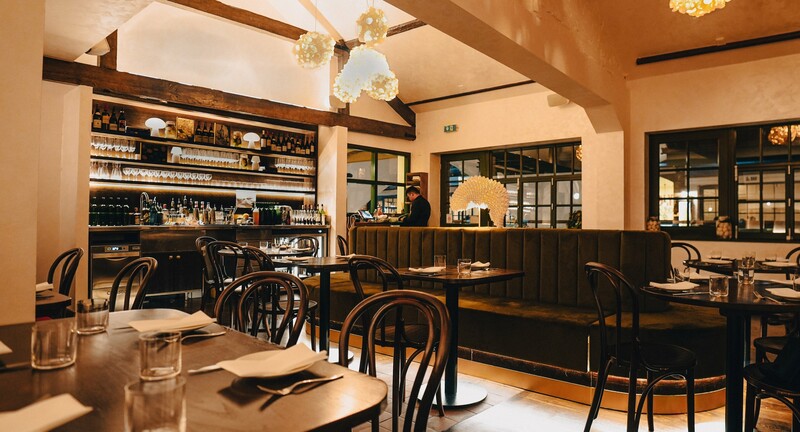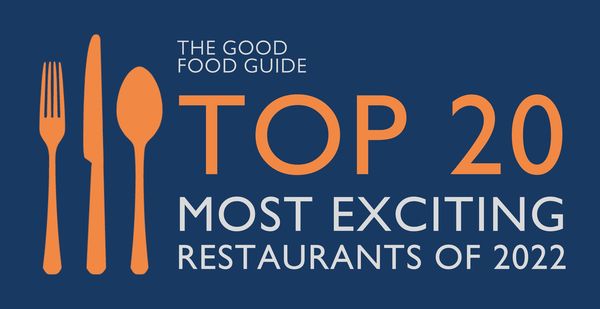As a critic, few things are as uncomfortable as having to hurriedly recalibrate opinions about a formerly wholehearted recommendation. A year or so ago, I excitedly dragged my wife along for a very late, post-theatre dinner at a West End restaurant — an opening I had published an exuberant rave about just six months earlier — and had the creeping sense, almost instantly, that we’d made an error. The house bread had a rigid, week-old staleness. A chicken main that I’d previously adored suddenly seemed loveless, slackly seasoned and overpriced. Dishes hurtled out to our table at a rate suggestive of a team that (understandably) had already clocked off. We fell gratefully into cocktails and a pretty good crème brûlée, but it felt like a useful lesson had been slapped down alongside the wincingly expensive bill: scoring a late-night walk-in can be a gamble.
‘What the heck has happened to London?’ wrote King, in an uncharacteristically forceful missive
I thought of this meal recently, in relation to what we might call The Great Late-Night Dining Debate: a fascinating fightback and emerging rift in the culinary world initiated, predominantly, by restaurateur Jeremy King – the exquisitely tailored force behind Le Caprice, The Wolseley and, now, Arlington and The Park – and his concern that wee-hours, post-9pm revelry is in danger of dying out. ‘What the heck has happened to London?’ wrote King, in an uncharacteristically forceful missive sent out to his restaurant group’s email database. ‘Over recent years, Londoners have seemingly become less nocturnal and are dining earlier and earlier… I want to encourage people to rediscover the fun of late night dining, for its own sake or combined with one of London’s many cultural or social events.’ To help accomplish this, King announced a special 25 per cent ‘night owls’ discount off the total bill, running until the end of the year, at his restaurants. Cue ripples through the industry and widespread praise for this unlikely keeper of the party-starting flame.

Meanwhile, at the other end of the spectrum, a clutch of restaurants are responding to shifting reservation habits by dusting down the early-bird special for a new generation. Ambassadors Clubhouse’s £35 set lunch deal now runs between 5.30pm to 6.30pm on certain days; Portland has a wildly bargainous, £55 early evening menu available between 5.30pm and 6.30pm. So what’s happening here? Is this a case of a dividing line drawn between people who like a very early, almost toddler-timed dinners, and those who favour gulped 10pm oysters, a vampiric stagger into the night, and a shaming Uber request time they’d prefer not to repeat? And, most pressingly, is very late dining something that we should care about saving?
Secret listening bars, cocktail dens and raucous, ivory-tinkling ‘singing pubs’ have never been more in vogue
It’s a more complex issue than it appears. Yes, the demand for earlier bookings is legitimate – not long ago Florence Mae Maglanoc, co-founder of the sensational Donia, explained the enervating mental Tetris of running a small, 50-cover spot when everyone wants to eat at 6.45pm. But it’s worth saying that the rise in early doors eating feels symptomatic of bigger shifts in how people work and play. Migration from city centres. Economic jitters. A shifting generational relationship to things like alcohol and nightclubs. All are hurting the UK's night-time economy and contributing to the feeling that people are generally getting their kicks earlier in the day. But on the other hand, secret listening bars, cocktail dens and raucous, ivory-tinkling ‘singing pubs’ – I am thinking here of Notting Hill’s sumptuously lived-in, invite-only new boozer, The Fat Badger – have never been more in vogue. Shuffle into the likes of Albert’s Schloss after 11pm and you’ll know that these early diners aren’t necessarily all scurrying straight home for herbal tea, Gardener’s World and radiator-warmed pyjamas.

Maybe it’s that traditional restaurants need to reassert themselves as a viable late-night option; that they need to reaffirm their status as a place to raise some hell and make some bad decisions (even if those bad decisions mostly relate to what a 10.45pm tiramisu is going to do to your SleepScore rating). In this respect, it’s vital to acknowledge that some establishments are better suited to late eating than others. That place where I had the calamitous post-theatre meal – a brasserie-inflected high comfort space that sparkled over the course of a long lunch – was not best suited to a late hour and a distracted brigade. But the cocooning glamour, blistered lamb skewers and miso-spiked old fashioneds at Sebb’s, in Glasgow? The riotous pop and moreish chicken skins of Speedboat Bar, in Soho? These are restaurants that invite you to embrace after-hours hospitality because they are so good at it.

Just last week I ducked into Covent Garden’s BloodSports: the screamingly creative and hedonistic late-night mash-up of a sports dive and a horror movie bar from the MeatLiquor team. The music was loud and irresistible; the interior was richly detailed, irreverent and overloading in the best possible way. An 11pm Dead Hippie, ferried over within minutes, was as messily lucid and indulgent as ever. It is fun, irreverent and legitimately weird in a way that very few other openings are; as far as it’s perhaps possible to get from Arlington, and yet, the perfect response to King’s concerns. Perhaps this is the answer to the feather-ruffling conundrum of night owls, early birds and morning larks. A thriving late night dining scene needs nothing more than businesses expressly built to promote the timeless, mischievous magic of a great late-night meal.








